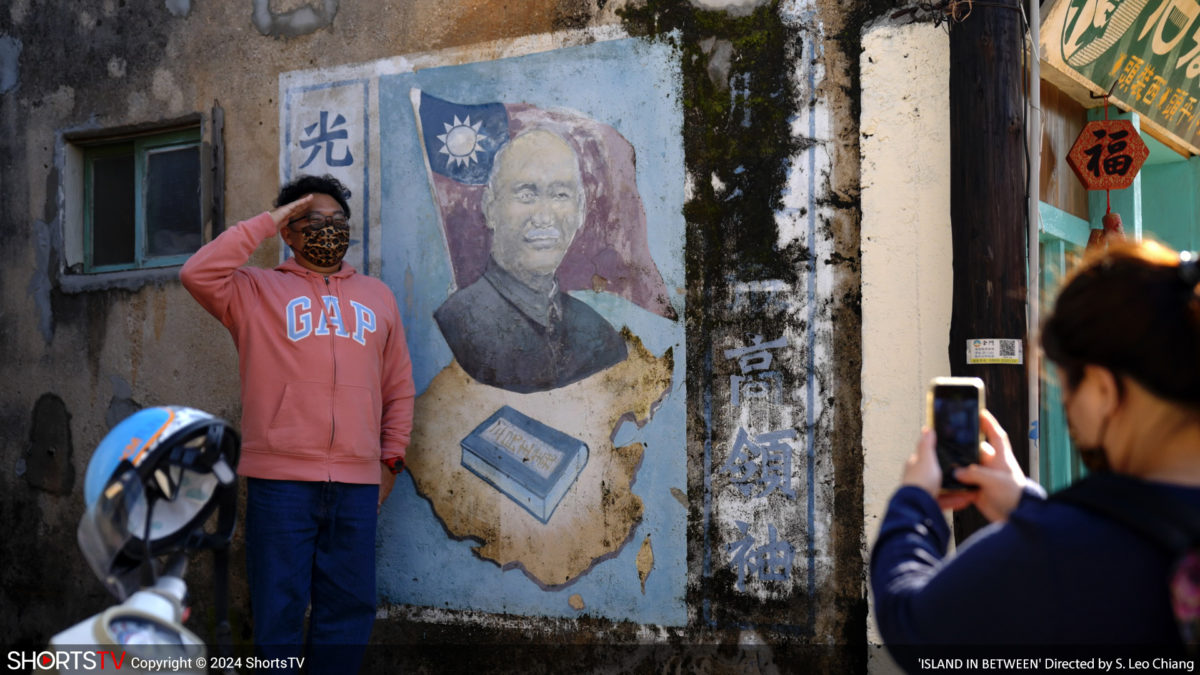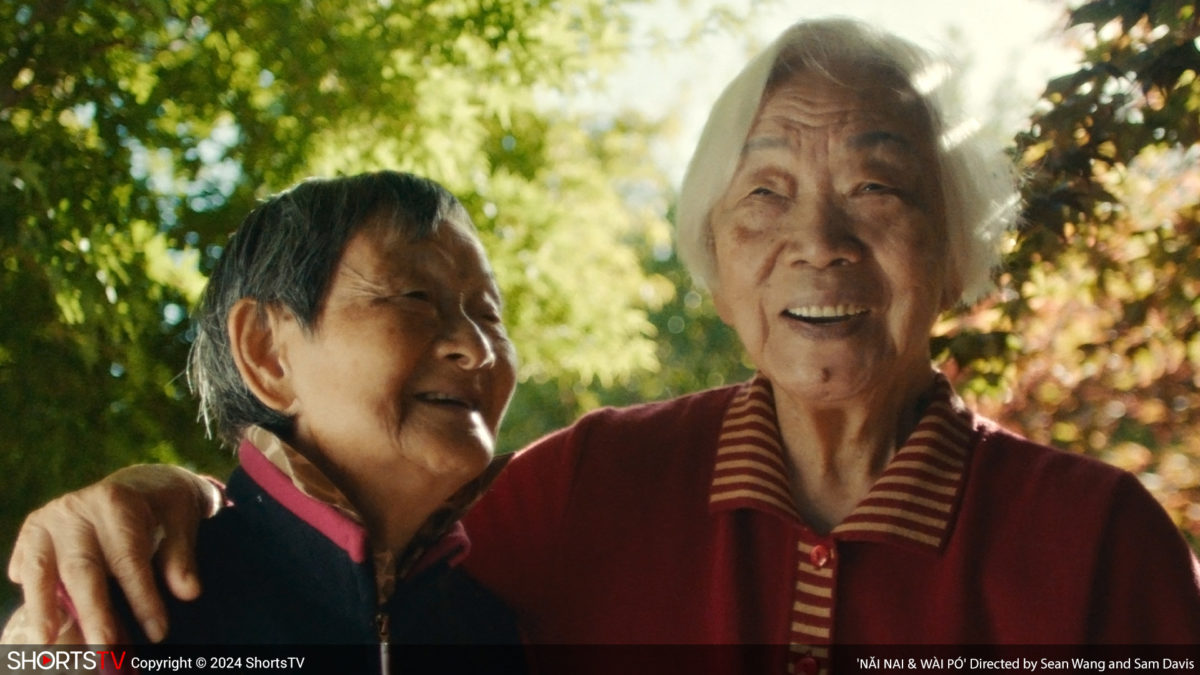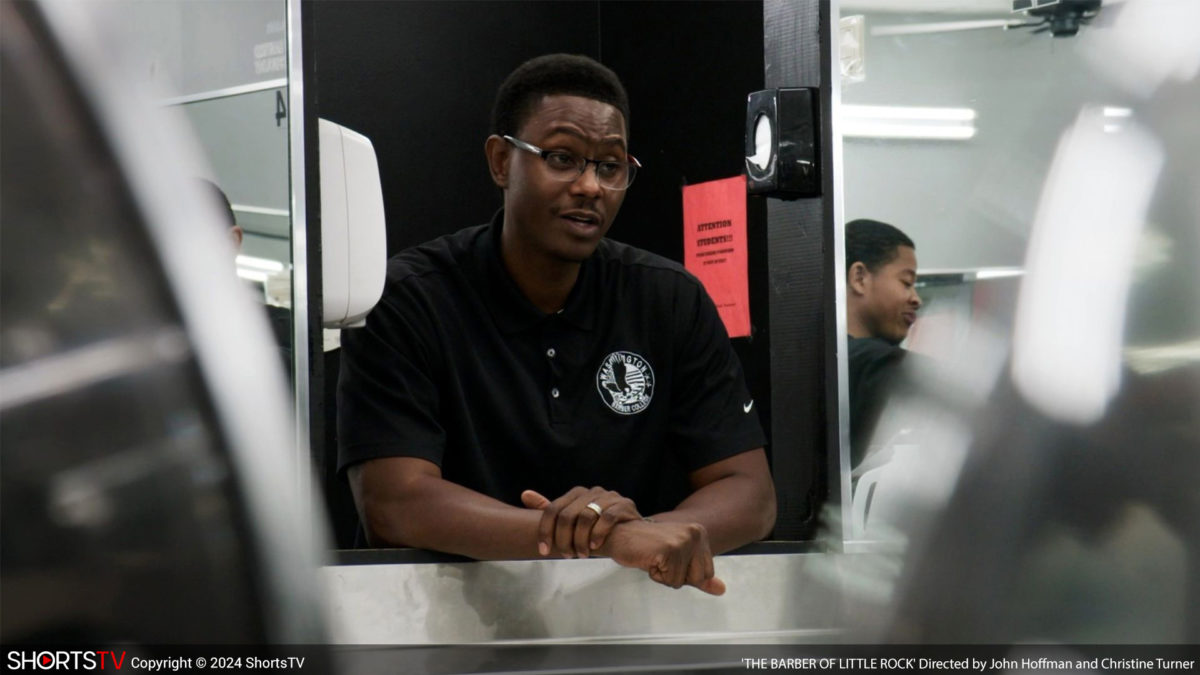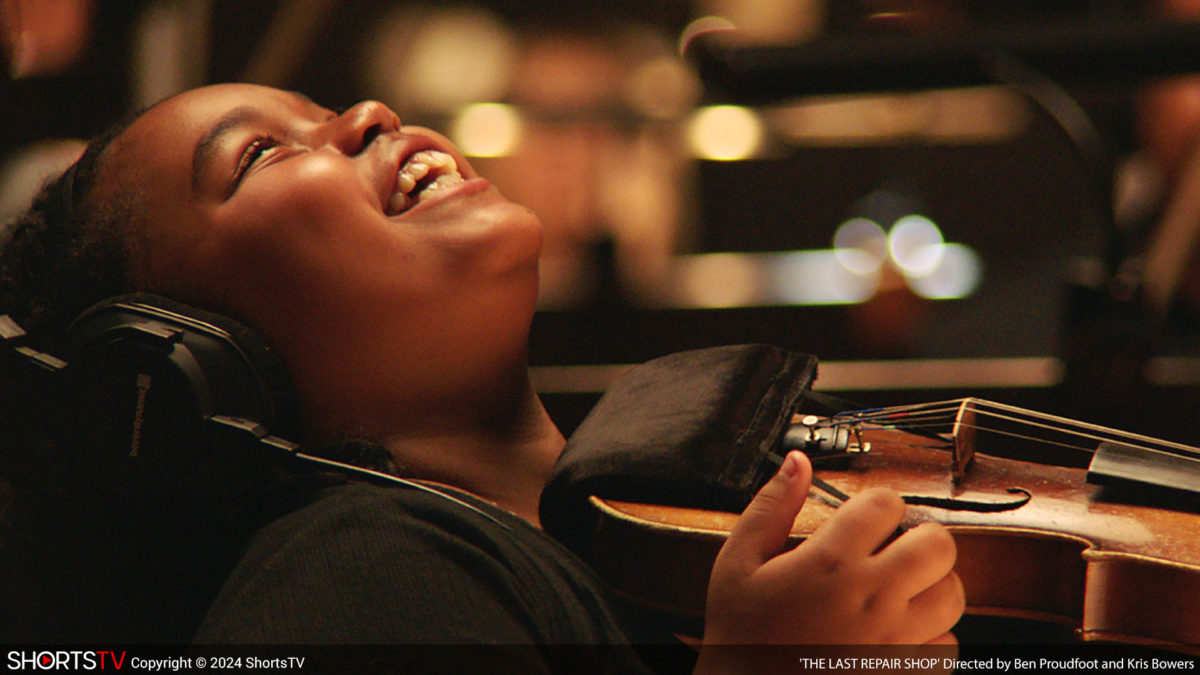Ahead of the Academy Awards, we’ve reviewed every short film in each category: Animation, Documentary, and Live Action. Here are the Best Documentary Short nominees:
Island in Between | Taiwan | 20 minutes

Located just a few miles from mainland China is a series of islands known as Kinmen––islands under the jurisdiction of Taiwan. This is where Taiwanese men spend their mandatory military service, as it’s the frontline of any impending conflict that might arise from China’s decades-long refusal to acknowledge the country’s sovereignty. Putting a Taiwanese face to the tensions, S. Leo Chiang traveled to Kinmen to capture its life in-motion.
That’s pretty much what Island in Between delivers: snapshots of residents with connections to both countries and voiceover narration describing Chiang’s own relationship with them (as well as the US). We see army drills. Listen to the “psychological warfare” of pumping Taiwan’s most famous singer across the water to China so people know what “freedom” sounds like. And even visit China for a bit so Chiang can describe the passport gymnastics necessary to move between them all (until COVID shuts the ferry down).
To me the whole is an intriguing look at a place I never would have thought to think about. Does it do much more than that? Not for me, but maybe for those with more insight into the dynamic. I feel as though it’s a story by a Taiwanese man for a Chinese and Taiwanese audience to better dismantle the propaganda taught by both sides about the other. When all is said and done, they really aren’t that dissimilar and thus should find a way towards a peaceful resolution rather than threats of invasion and hostile takeover. It’s nice in principle, but I’m not sure the Chinese government necessarily cares. You have to start somewhere, though.
C+
Nai Nai & Wài Pó | USA | 17 minutes

They say their energy is different when their grandson is visiting, but you must wonder if it’s quite as different as he depicts in Nai Nai & Wài Pó. Sean Wang’s equally tongue-in-cheek and heartfelt documentary about his grandmothers would have us believe that Yi Yan Fuei and Zhang Li Hua sit in silence reading the newspaper or sleep all day in bed without him to occupy their time. And while that’s obviously a believable proposition––one is 80, the other 90––watching their lust for life when mugging for his camera makes it impossible to think they could ever allow themselves to be so still.
People always talk about spending time with their elders and filming or photographing them before they pass, but Wang actually does it in a way that supplies them a forum to both wax philosophical (with sentiments akin to how living joyfully is easy when you realize fearing death won’t prevent it anyway) and be utter goofballs (dressing up in costumes to throw money down the stairwell or swing swords in the air). They are great sports with infectious personalities that let Wang playfully coax them into feeling comfortable enough with the camera to talk about farts as readily as growing up through poverty and war.
It’s that juxtaposition that makes the short so memorable and fun––we can learn about them in context with history as well as with the family they helped create. And it’s totally their show. We never see Wang’s parents (each a child of one of the women) or neighbors. This is about how these “sisters” spend each day together as if it were their last; the next might prove exactly that. So: let their grandson smile. Remind each other about everything they’ve done and who they are. Enjoy every moment as the new adventure it is when you’re willing to let spontaneity and laughter take the wheel. Because the latter truly is the best medicine.
B
The ABCs of Book Banning | USA | 27 minutes

I am keenly aware of how flippant the following remark is, but I’m going to say it anyway: I cannot believe the Academy nominated a clickbait listicle for an Oscar. That’s truly all The ABCs of Book Banning is as covers are shown and sentences are read before a giant red stamp reading “banned,” “restricted,” or “challenged” is superimposed above the title. So if you’re not sure what books are being censored, here’s a collection of the most famous ones.
Amidst the slideshow are brief interviews with children wondering why anyone would ever want to prevent them from learning. Do the filmmakers explain it to them? Do they put these kids in front of the hypocritical groups petitioning school boards, forcing them to spout the bald-faced lies they have been pretending are reasons to fear these texts? Do they provide us anything of value above parading these 10-year-olds in front of the camera to put a cute, precocious spin on a very dangerous trend in America? No.
Showing 100-year-old Grace Linn’s speech at a board meeting almost adds some value to the film, but we once again witness zero conflict or response. Where are the committee members squirming in their seats? Where are the protestors attempting to dispute her words? They have been erased in a bid to “give a voice to those against book banning since all we hear are the voices of those for it.” Really? Even if that were true, why not dive into the causes for why that’s the case. Why not utter the word “Republican” even once? Why not put the lessons from these banned books to use?
By refusing to engage with the issue beyond simply acknowledging it exists, the filmmakers are helping legitimize the banning party’s illegitimate argument. By pretending this is an issue that can be solved by reasoning with an ignorant public rather than by stopping the shrewd manipulators fueling that ignorance, they’ve proven they’ve been manipulated too.
D+
The Barber of Little Rock | USA | 35 minutes

The first thing I thought about while watching John Hoffman and Christine Turner’s The Barber of Little Rock was It’s a Wonderful Life. Not due to plot, but character. To see someone like Arlo Washington leverage his position as a business owner with means in an impoverished neighborhood can’t help conjuring images of George Bailey and his Building & Loan. Just like that cinematic icon fought a exploitative system through compassion and community solidarity without a desire to profit off their pain, Washington provides knowledge, money, and power to those that same system was built to fully ignore.
This Arkansan barber found a vocation he exceled at and followed its success with a vision few allow themselves to have. Where many would take the money and run to the other side of the interstate where banks and commerce and opportunity await, Washington stayed. Not as a hollow gesture to “stay connected to his roots” while hoarding his profits, but to literally put his money where his mouth was by bringing banks and commerce and opportunity to them. First it was a barber school to give men and women a path towards economic freedom. Then it was The People’s Trust to secure those same people tangible ownership in their own futures.
It’s inspiring. Not only because of the lives impacted, but also the example set for those who did embrace the escape hatch instead of working to make home an escape hatch itself. So of course the statistics show 95% of his loanees pay back on time. Unlike white banks racially profiling to refuse assistance sight-unseen, Washington knows his community and what they stand for. He knows what they can accomplish if given the chance too many others receive with a tenth of the legwork and due diligence needed to prove they’re a good investment. And they know him. Unlike with predatory lenders, it’s their success––not their failure––that ultimately increases his own.
Hoffman and Turner package his Bailey-esque modesty in an informative film that provides Washington a spotlight to explain his motives while also giving voice to those he’s taken under wing to make certain we understand how bad the wealth gap is for those “living while Black.” Because if you left it to Washington himself, he’d probably just say he’s doing what every bank should by looking at the full picture of a person’s life rather than just their credit score––or, worse, their skin color. We need their insight to fully comprehend how he isn’t merely doing what should be done. He’s changing the game by proving exactly why it is no one else will. Whereas the system deals in profit, Washington deals in dignity.
B
The Last Repair Shop | USA | 39 minutes

Composer Kris Bowers and Oscar-winning director Ben Proudfoot reteam (after working together on A Concerto is a Conversation) for the wonderful documentary short The Last Repair Shop. What initially appears a simple spotlight on a longtime institution’s impact on education (the Los Angeles Unified School District being one of the last American districts to still offer its students free musical instruments and repairs) soon reveals a powerful message about art’s impact on identity, culture, and survival. And not just because of the kids who find meaning and purpose through playing, but also the technicians supplying the means to do so.
The four student testimonials opening each chapter (one for each of the quartet of departments: strings, brass, woodwind, and piano) inspire with reminiscences of the joy of music and admissions that playing may have steered them away from the dangers that often befall children growing up in poverty. Their companion conversations with a technician from each department, however, are what turn this sweet look at a cultural mainstay into a profoundly important celebration of a truly life-saving program.
Whether it’s Dana Atkinson knowing what playing can mean to a closeted child reaching a crisis point or Paty Moreno having this job change the course of her immigrant family’s lives. Or Duane Michaels taking a $20 fiddle on tour with Elvis Presley or Steve Bagmanyan fleeing the USSR once Soviets turned on Armenian residents. These are heavy, heavy stories about persevering and paying forward the indelible mark that music had on their pasts to future generations in need of a similar guiding star. Add a great mix of process shots during repairs and archival footage to contextualize their memories and it’s hard not to give your whole heart to the film’s premise, motives, and result.
A
Starting February 16, the 19th annual Oscar® Nominated Short Films releases, presented by ShortsTV, will debut in theaters only. To learn more about the participating theaters and how to purchase tickets, please visit www.shorts.tv/theoscarshorts.
